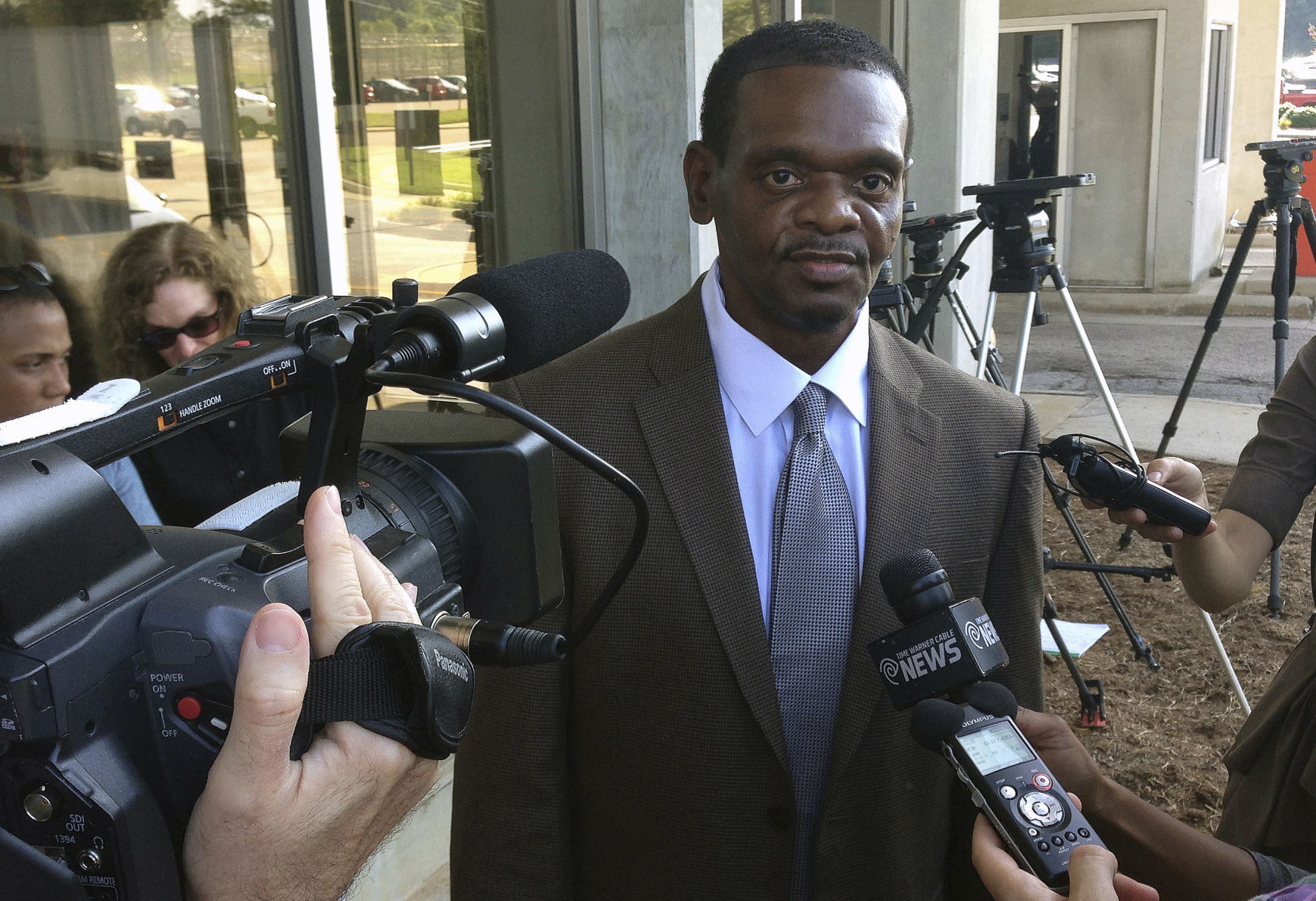RALEIGH, N.C. (AP) — A judge has thrown out a contract allowing lawyers for a man freed after 30 years on death row to claim a large part of his compensation for wrongful imprisonment. Judge Terrence Boyle ruled Monday that
RALEIGH, N.C. (AP) — A judge has thrown out a contract allowing lawyers for a man freed after 30 years on death row to claim a large part of his compensation for wrongful imprisonment.
Judge Terrence Boyle ruled Monday that Henry McCollum lacked competence to sign with lawyers currently representing him in a lawsuit against investigators who put him behind bars. The current lawyers are not the ones who helped free McCollum and his half brother from prison in 2014.
“Despite his desire to proceed for himself and manage his own affairs, McCollum continues to evince signs of being easily manipulated and a lack of understanding of his attorneys,” the judge wrote.
A proposed settlement would have allowed the lawyers to claim $400,000 of $1 million in payments to McCollum and his half brother, Leon Brown, from the town of Red Springs and its investigators. Boyle denied that settlement in May, citing ongoing concerns about McCollum’s competency. He appointed an advocate for McCollum known as a guardian ad litem.
The half brothers, imprisoned following the 1983 killing of an 11-year-old girl, were released in 2014 because of DNA evidence that pointed to another man. They were later pardoned. Both have low IQs, and their attorneys say they were scared teens berated by investigators and fed details about the crime before they signed fabricated confessions.
Boyle didn’t rule on Brown’s arrangement with the same attorneys, but he requested more information from Brown’s separate legal guardian, who joined the civil case in 2016.
The judge indicated neither man validly entered the representation agreement they signed in 2015.
One of their lawyers in the civil case, Patrick Megaro, didn’t immediately respond to an email Tuesday. The lawyers could appeal Boyle’s decision.
McCollum’s guardian ad litem, Raymond Tarlton, wrote in a July filing that Megaro helped steer the men into high-interest loans and other dubious financial arrangements that threaten their financial futures.
Separate from the civil lawsuit, Boyle’s ruling revealed that McCollum says his lawyers claimed half of his $750,000 payout from North Carolina under a compensation program for wrongful convictions.
“The court concluded that there’s no valid representation agreement, so the next step is to address potential claims to recover money that’s been taken from him,” Tarlton said by phone.
For his part, McCollum testified at an August hearing that he can handle his own affairs and trusts Megaro. He also said he was weary of the civil case and hoped for a quick resolution.
A Duke University law professor said it’s not unusual for a judge to adjust attorney fees in lawsuits, but he’s not aware of another wrongful conviction lawsuit in which a judge has had to intervene regarding the propriety of a representation agreement this way.
“This is unusual,” said James Coleman, who leads Duke’s clinic on wrongful convictions. “A lot of judges wouldn’t do this simply because they don’t want to intervene. I think Boyle was right to look at this.”
———
Follow Drew at www.twitter.com/jonldrew


